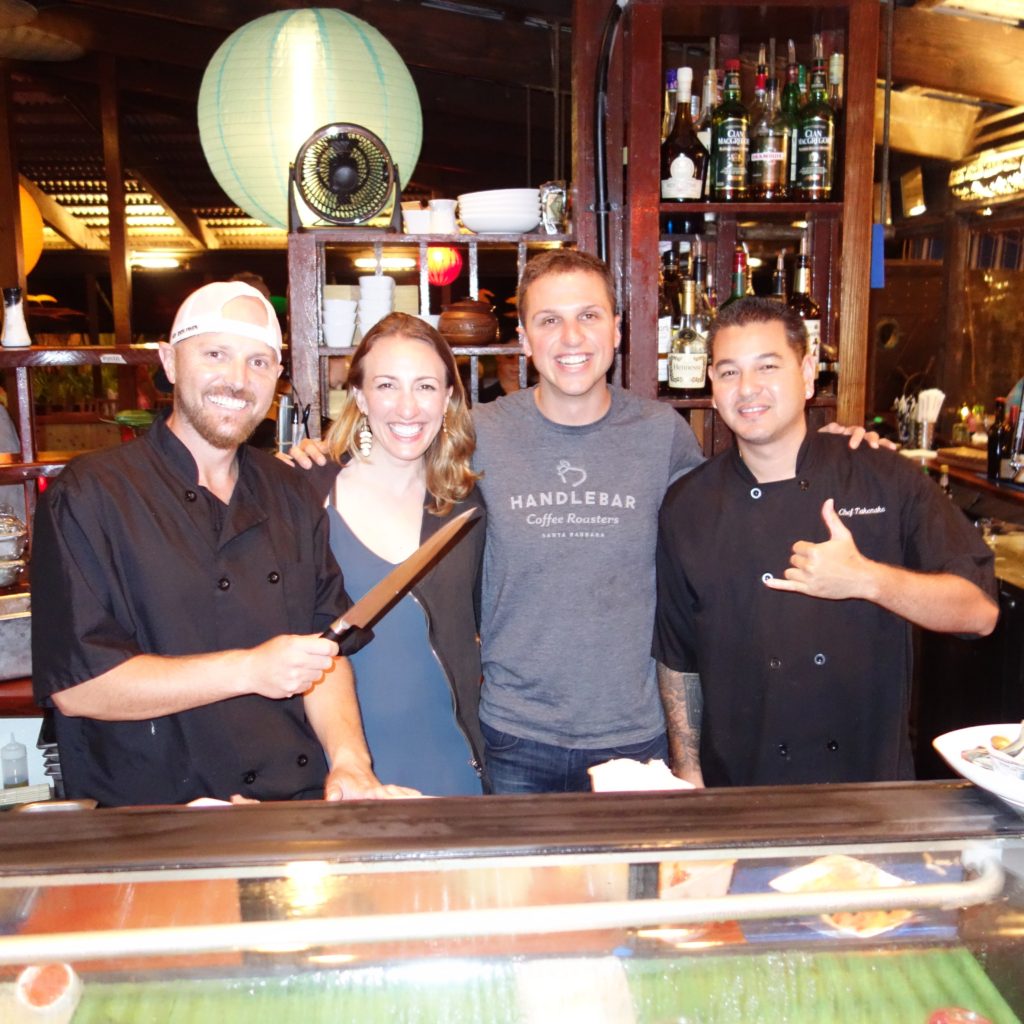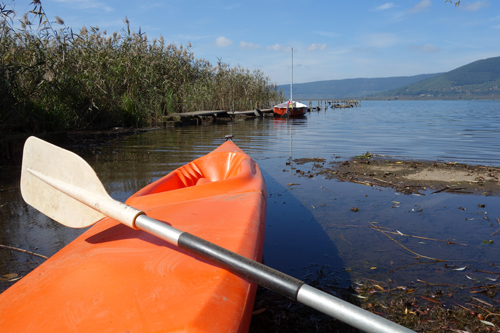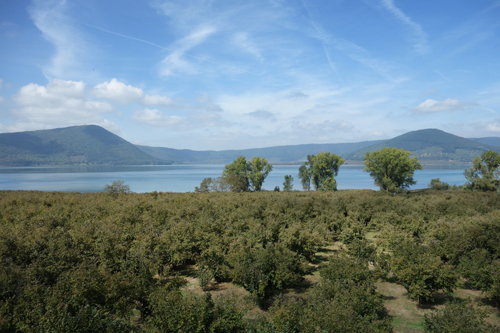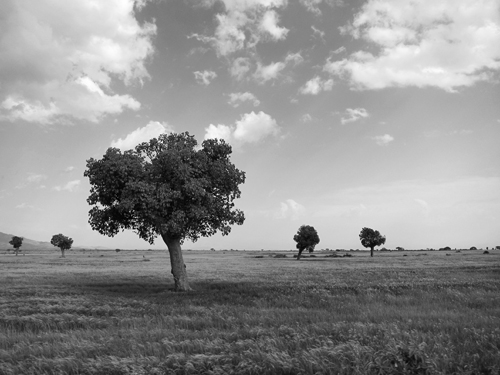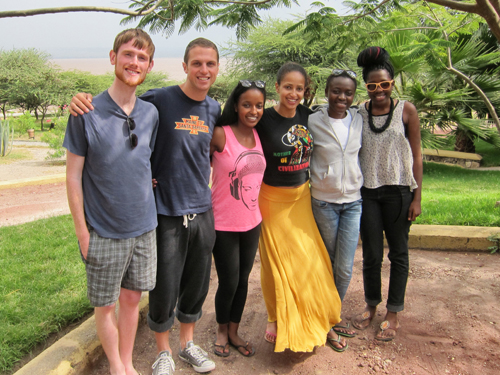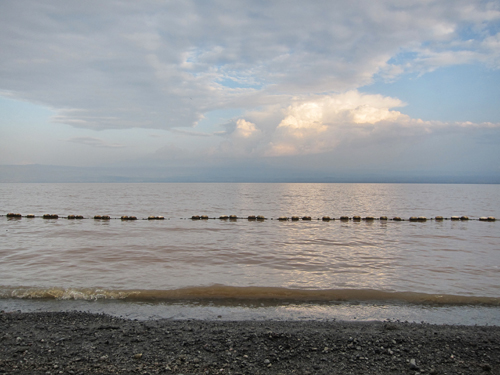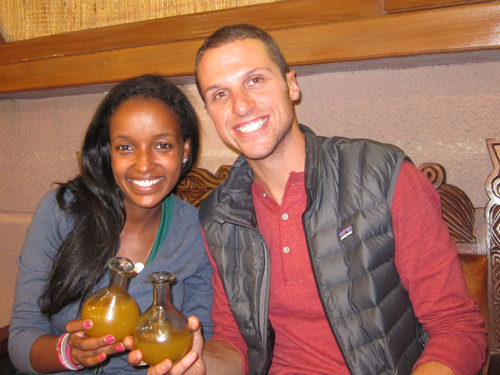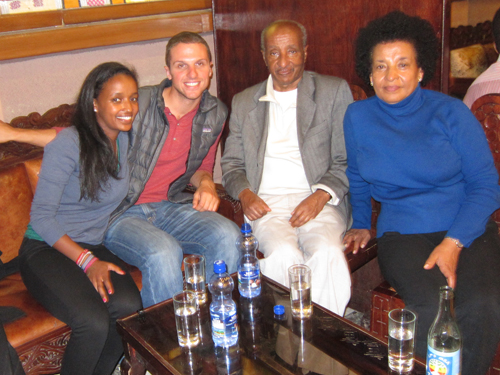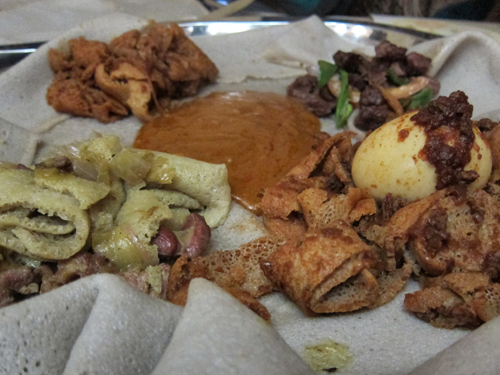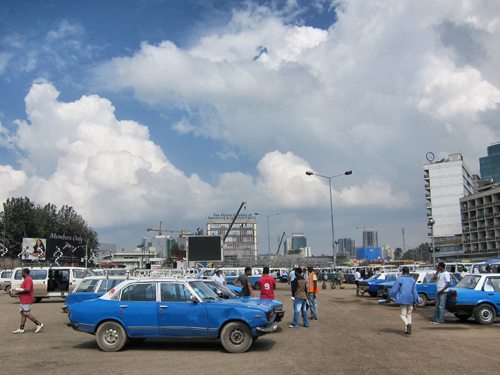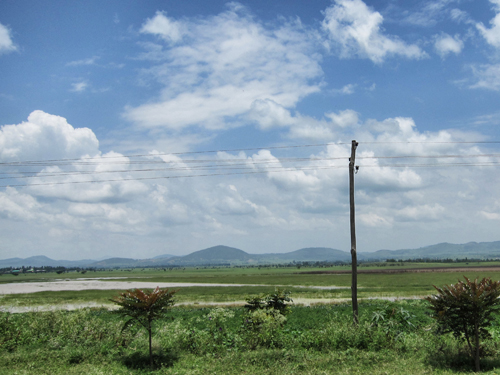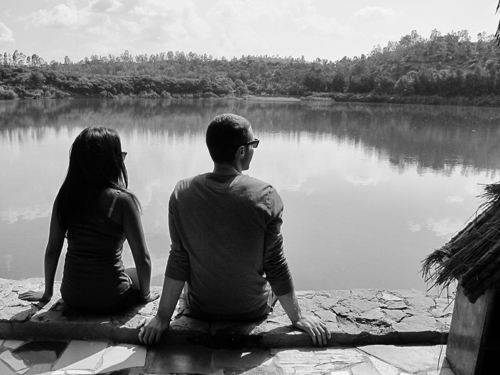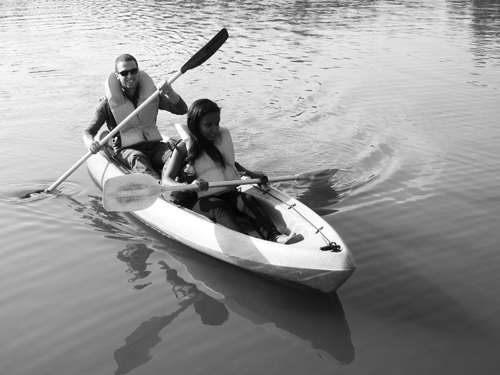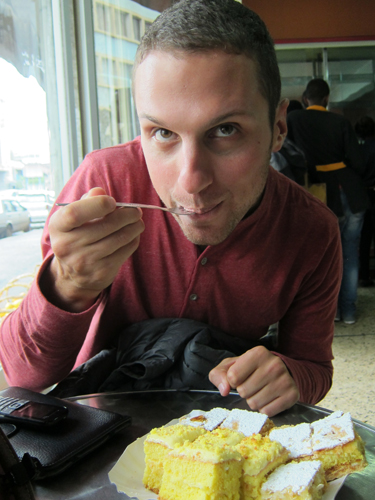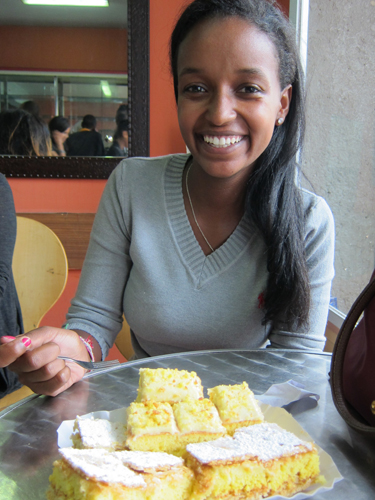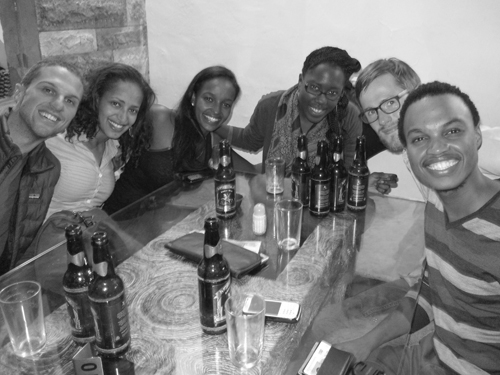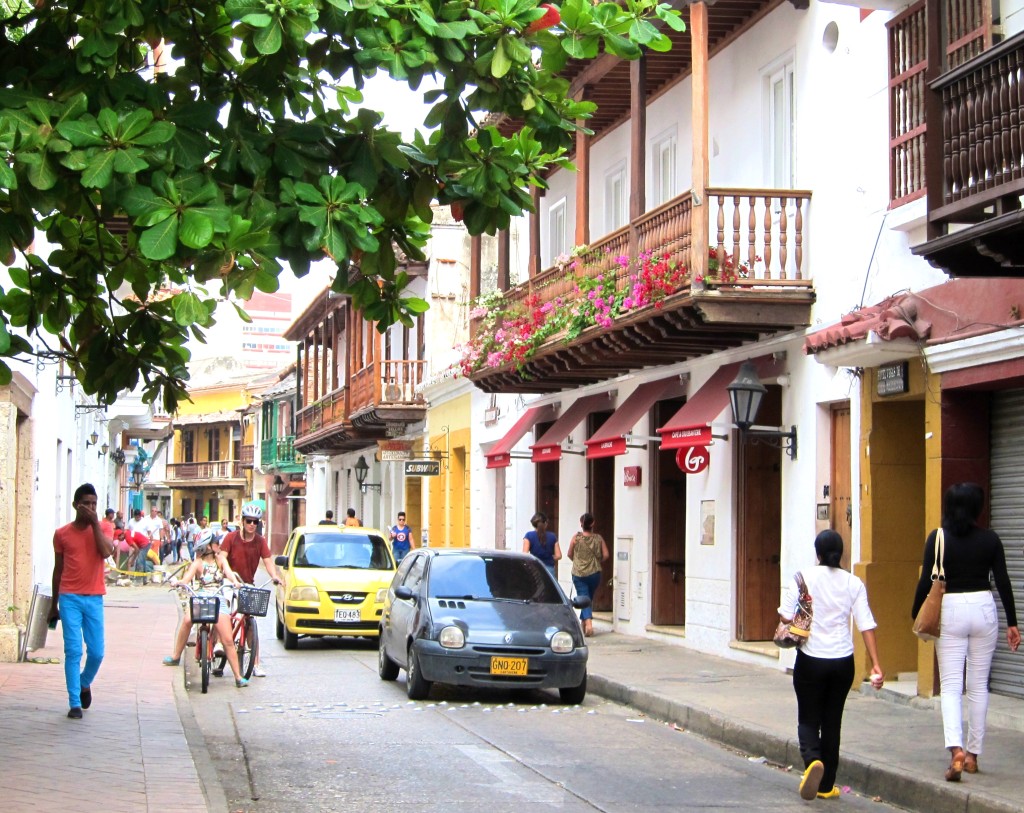
“Your taxi is here!” Olga exclaimed as we quickly decided what to pack for our day trip into Cartagena. Cash, cards, sunscreen, a couple of Cliff bars, both cameras. We came downstairs to find Olga and our driver for the day, Alberto Blanco, stooped over a map bickering over the best sites in the city, plotting our day with a pen and paper.
“Are you on your honeymoon?,” he asked as we cuddled in the backseat, equal parts giddy and anxious about the day’s adventures. Apart from our view of Cartagena in the airport taxi, we’d done almost no research to prepare us for what was ahead.
So we started at the only place to start: the top of the city. “…Si no has subido a la popa, no has vito a Cartagena!” the poster read. Alberto had taken us under his wing, proudly describing the history and significance of the site. Pointing down toward the city, he explained the day ahead as we oriented ourselves in the heat of Cartagena.
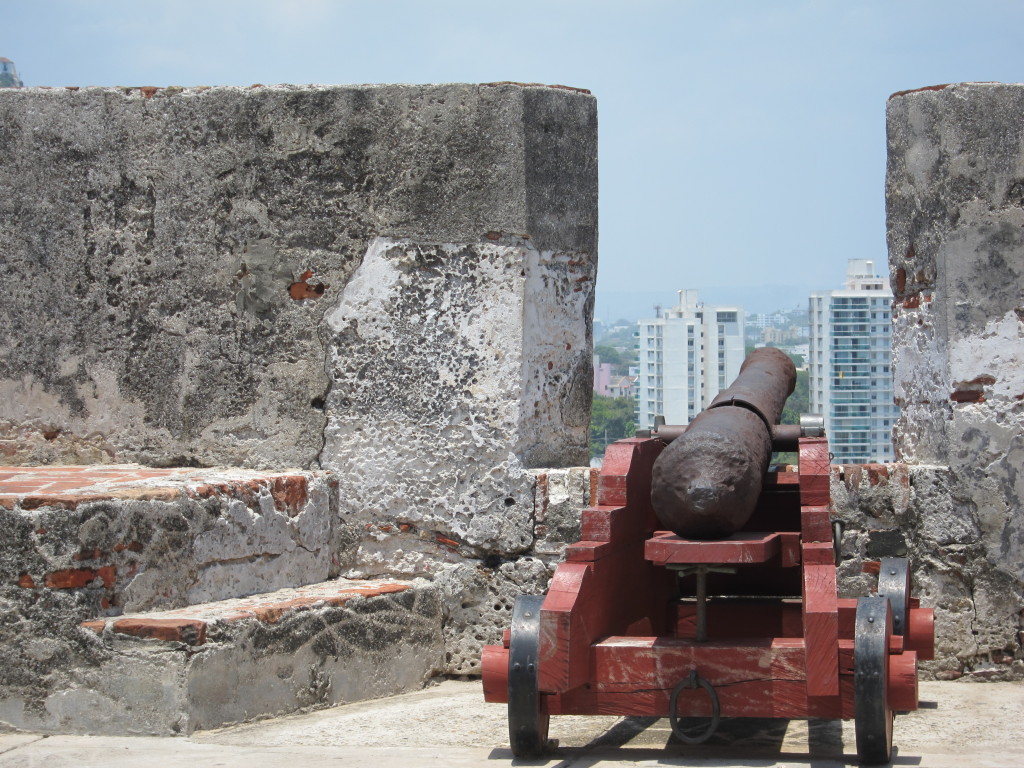
We ventured back down the steep drive, then up another, landing at Castillo San Felipe de Barajas castle. The audio tour was just 15,000 pesos extra ($5). We were already in a learning mindset, so we splurged, but the headphones hung a half-inch from either ear, making hearing the bombardment of names and dates nearly impossible. (We gave up and read the Wikipedia page instead.) With headphones wrapped around our necks, we stuck our bodies against the cool walls of the tunnels, walking around the castle to capture pictures so that we wouldn’t forget what heat exhaustion threatened to wipe from our memories. (Kinda dramatic, kinda not.)
Alberto swooped us away from the hat vendors (“Don’t buy them here. The price is not fair.”) and into his air-conditioned taxi where he blared jazz music as we drove into the walled city for lunch. Olga had chosen the destination, and we chose platters of chilled rose, ceviche, fish balls, and platters of shrimp served with a coconut rice we had come to love.
Ignoring the suggestion to venture from lunch to the gold museum, we strolled the walled city, popping in and out of air-conditioned stores for reprieve. There was something magic in the liveliness of color set against the suggested safety of the wall.
When we met back up with Alberto, he was eager to show us more, showing us how to sneak in to the most expensive hotel in all of Colombia and introducing us to his mother outside of his childhood home. One of us coaxed the other down from a heat-induced meltdown with the purchase of agua sin gas before Alberto insisted on driving us through the only neighborhood of Cartagena we hadn’t yet seen. We reasoned together that should we move to Cartagena, this is where we’d find our high-rise apartment.
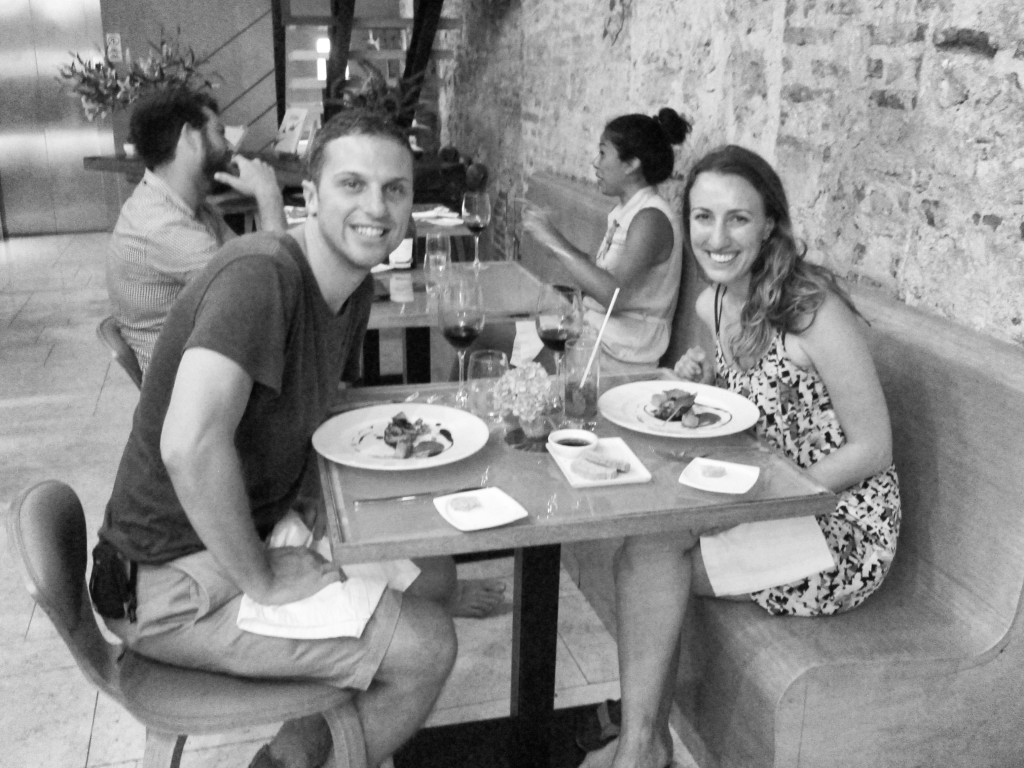
By 8:00, we were ready to relax over dinner at Carmen where we quickly decided on the extravagant tasting menu with wine pairings. Three hours later, we emerged full, relaxed, and a little bit tipsy. Alberto met us as planned, ready to drive us back to Olga’s, this time with his wife in the front seat. It had started to rain, and they bickered in Spanish about road safety during a rainstorm. “Don’t worry,” he told us. “If we cannot make it back, you will stay at our house. We have an extra bedroom, a bed, it will be for you, no charge.”
We made it back to Olga’s safely, and absolutely exhausted. We tucked ourselves into the mosquito net and drifted to sleep.
